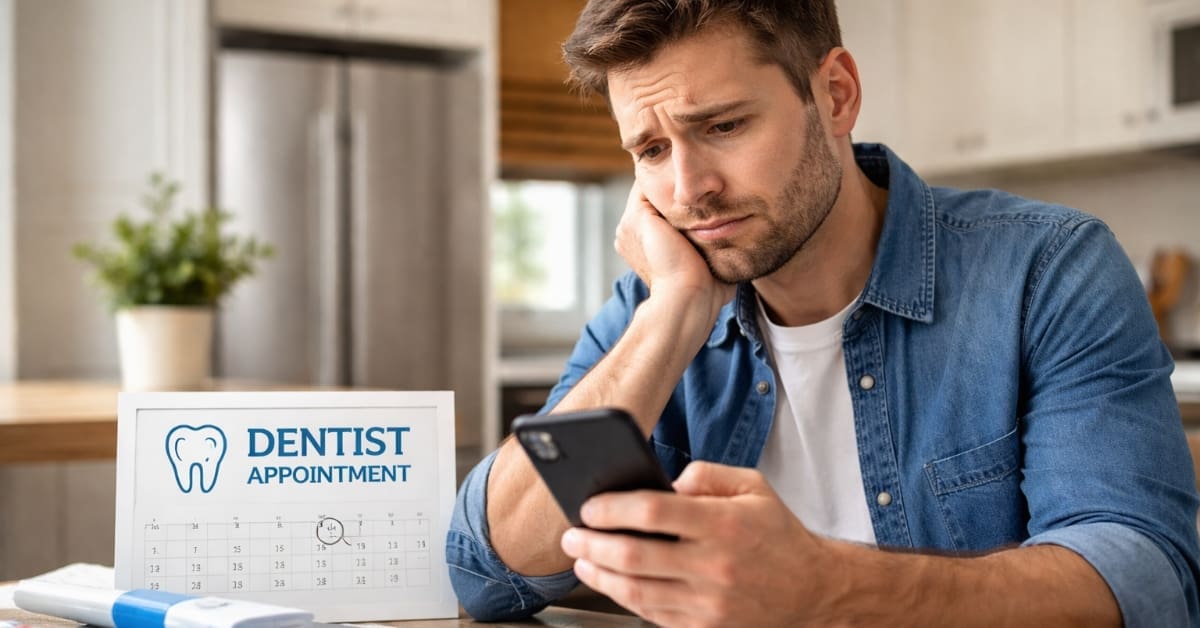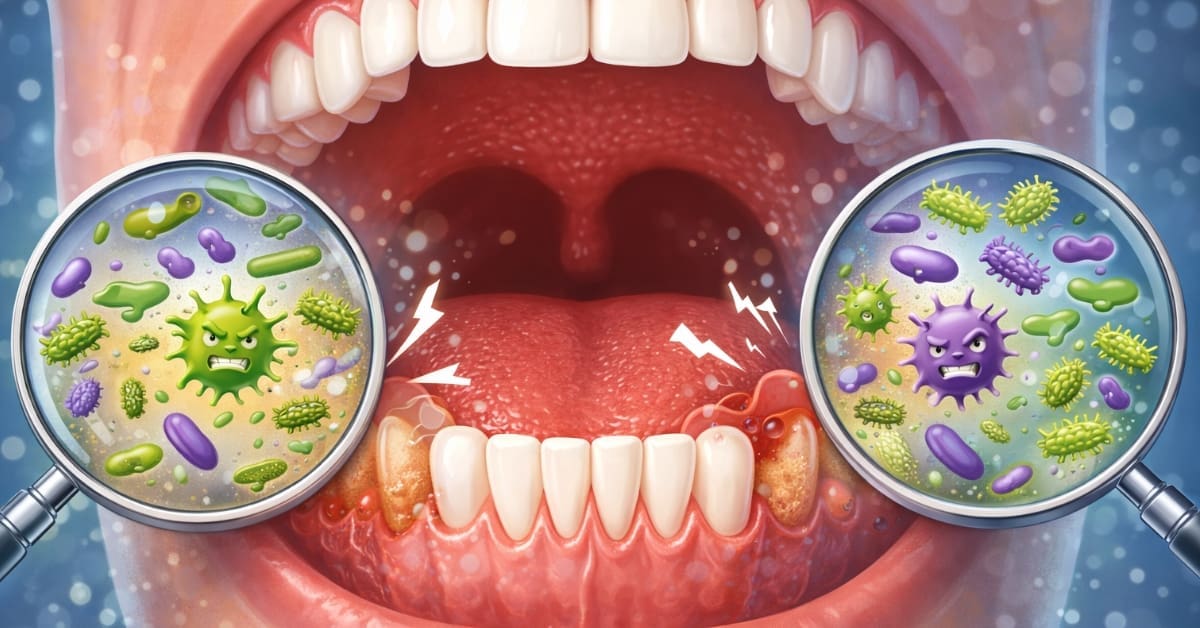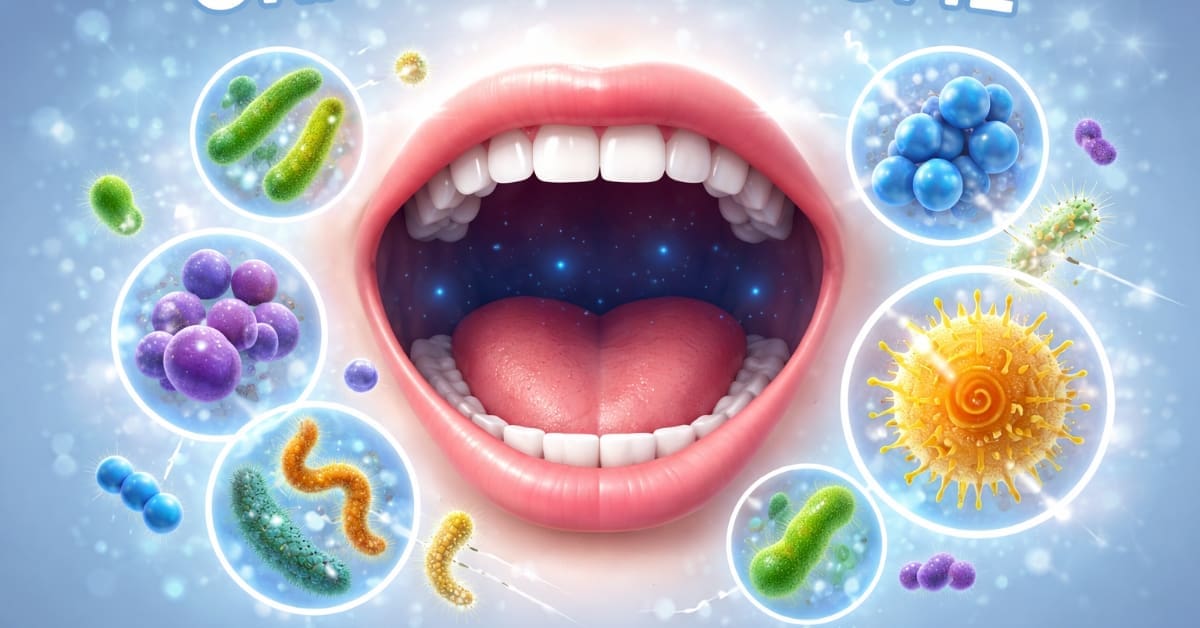What Causes Chipped Teeth?
Chipped teeth are more common than you might think. While they might not always be painful, they can certainly be unsightly and, depending on the severity, uncomfortable or even sharp to the touch.
Understanding the causes of chipped teeth and treatment can help you avoid damage and maintain a healthier smile.
Common Causes of Chipped Teeth
A chipped tooth can happen suddenly or over time, and several factors can contribute to this dental issue:
- Trauma or Accidents: One of the most frequent causes of chipped teeth is physical impact. Whether you’re involved in a car accident, take a fall, or get hit in the face while playing sports, trauma can result in a chipped or broken tooth—especially if you aren’t wearing proper mouth protection.
- Everyday Mishaps: It doesn’t always take a major accident to chip a tooth. Something as simple as accidentally hitting your tooth with a glass, utensil, or bottle can lead to a chip—especially if the force is stronger than you realize.
- Teeth Grinding (Bruxism): Grinding your teeth, particularly at night, wears down your enamel over time. This makes teeth more susceptible to cracking and chipping, even during normal activities like eating.
- Chewing on Hard Substances: Ice cubes, popcorn kernels, pens, fingernails, and hard candy are all culprits when it comes to chipped teeth. These hard substances put excessive pressure on your enamel, which may already be weakened.
- Enamel Erosion: Enamel, the protective outer layer of your teeth, is strong—but not indestructible. Acidic foods and beverages, frequent snacking, poor oral hygiene, and health conditions like acid reflux can erode enamel over time, leaving teeth more prone to chipping.
- Cavities and Decay: Weakened teeth due to decay or untreated cavities are more fragile. A minor impact or pressure from biting down on something hard can be enough to cause a piece of the tooth to break off.
What Are the Treatment Options for Chipped Teeth?
If you’ve chipped a tooth, don’t panic. Not all chips are serious, but it’s important to let a dental professional evaluate the damage. At Suburban Essex Dental in West Orange, New Jersey, we offer a range of treatment options based on the severity of the chip:
- Minor Chips: If the chip is small and mostly cosmetic, we may be able to smooth out the rough edges or apply a bit of dental bonding to restore the tooth’s shape and appearance.
- Moderate Chips: For chips that are more noticeable or affect the function of your bite, dental bonding or veneers might be recommended. Bonding uses a tooth-colored resin to rebuild the tooth, while veneers are thin porcelain shells that cover the front of the tooth for a flawless finish.
- Severe Chips or Breaks: If the tooth is significantly damaged or if the inner pulp is exposed, a dental crown may be needed to protect and restore the tooth. In some cases, a root canal may be necessary if there’s nerve involvement.
Symptoms of a Chipped Tooth
Some chipped teeth are painless and go unnoticed for a while. Others can cause immediate discomfort or sensitivity. Here are some signs that your chipped tooth may need attention:
- Sensitivity to hot or cold food and drinks
- Pain when biting or chewing
- Rough or jagged edges that irritate your tongue or cheek
- Visible cracks or missing pieces of the tooth
Whether your symptoms are mild or more severe, it’s always a good idea to schedule a dental evaluation to prevent future complications.
What Causes Chipped Teeth in Your Case? Let’s Talk
Have you recently chipped a tooth or suspect that one of your teeth is damaged? At Suburban Essex Dental, we’re here to help you know the causes of chipped teeth and understand the treatment options. Lets get to the root of the problem and find a solution that fits your situation.
Located in West Orange, NJ, we welcome patients from across the Northeast—and if you’re not local, call us so we can arrange a virtual consultation to review your concerns and explore your options from the comfort of your home.
Contact us today to schedule your in-person or online visit. Let’s restore your smile—together!





